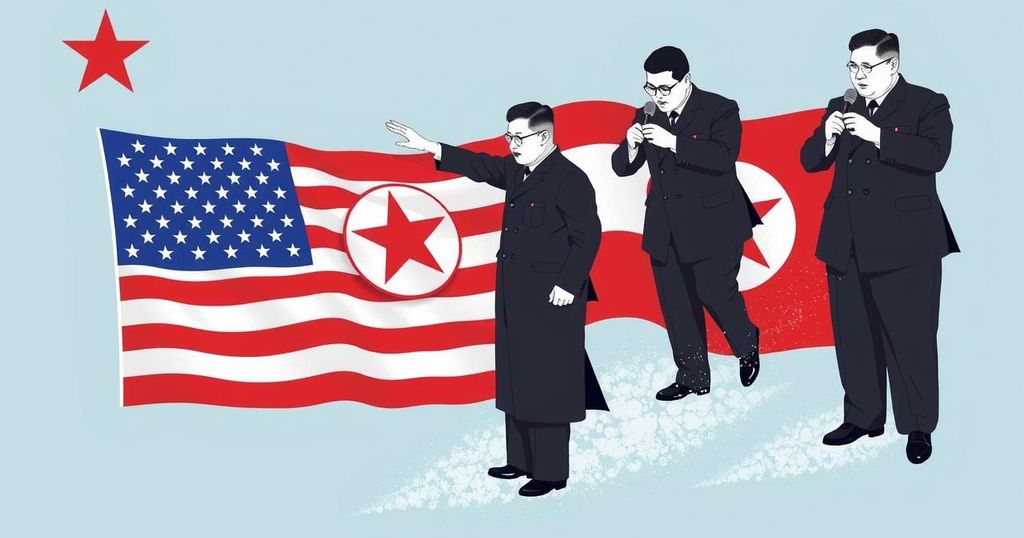North Korea, under Kim Jong Un, has declared a new aggressive strategy towards the United States during a recent party meeting, condemning U.S.-led alliances with South Korea and Japan as hostile. The meeting also addressed internal challenges like flood management and emphasized strengthening ties with friendly nations, reflecting the regime’s commitment to military preparedness and strategic resilience.
In a recent ruling party meeting, North Korean leader Kim Jong Un announced a “strongest” response strategy to the United States, emphasizing the need for national safety and interests. The meeting, reported by state media KCNA, took place from December 23 to 27, as preparations for the new year began. It condemned the expanding trilateral military alliance of the United States, South Korea, and Japan, labeling it a “nuclear military bloc” and characterizing South Korea as an “anti-communism outpost” of the U.S. The report stated, “The reality clearly suggests which direction we should go and what we should do and how.” Furthermore, the meeting assessed this year’s flood management efforts, focusing on the resettlement of affected individuals in the capital, Pyongyang. Kim also indicated a desire to strengthen ties with allied nations, presenting the session as essential for policy formulation amid significant geopolitical dynamics. This session marked a pivotal conclusion to a year highlighted by Kim’s discussions with Russian President Vladimir Putin, who extended military cooperation amid rising tensions with the U.S. and its allies.
This declaration by North Korea comes at a time of heightened military cooperation among the U.S., South Korea, and Japan, which has raised alarms within North Korea. The country’s leadership regularly engages in policy-setting meetings, particularly when facing external pressures, to adjust their strategic stance. The recent meeting coincided with rising concerns over North Korean arms supplies to Russia, especially regarding the ongoing conflict in Ukraine. This dynamic not only adds complexity to regional security but also reflects North Korea’s commitment to enhancing its defense posture in response to perceived threats.
In summary, North Korea’s declaration of a “strongest” response strategy towards the United States signals a continued commitment to bolstering its military capabilities and asserting its position against what it views as external aggression. The ruling party meeting demonstrated the regime’s ongoing motivations to solidify alliances with friendly nations while addressing domestic challenges, such as disaster recovery. As geopolitical tensions escalate, North Korea seeks to assert its narrative amidst changing world dynamics.
Original Source: www.hindustantimes.com






